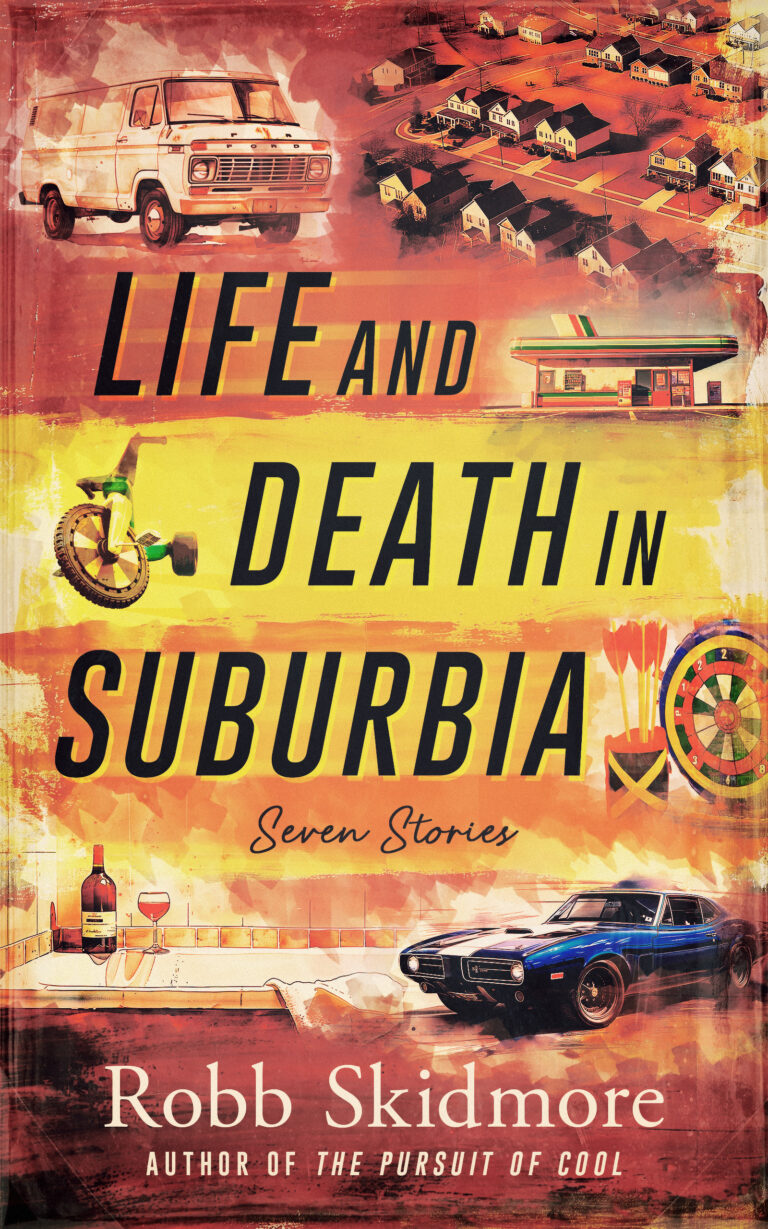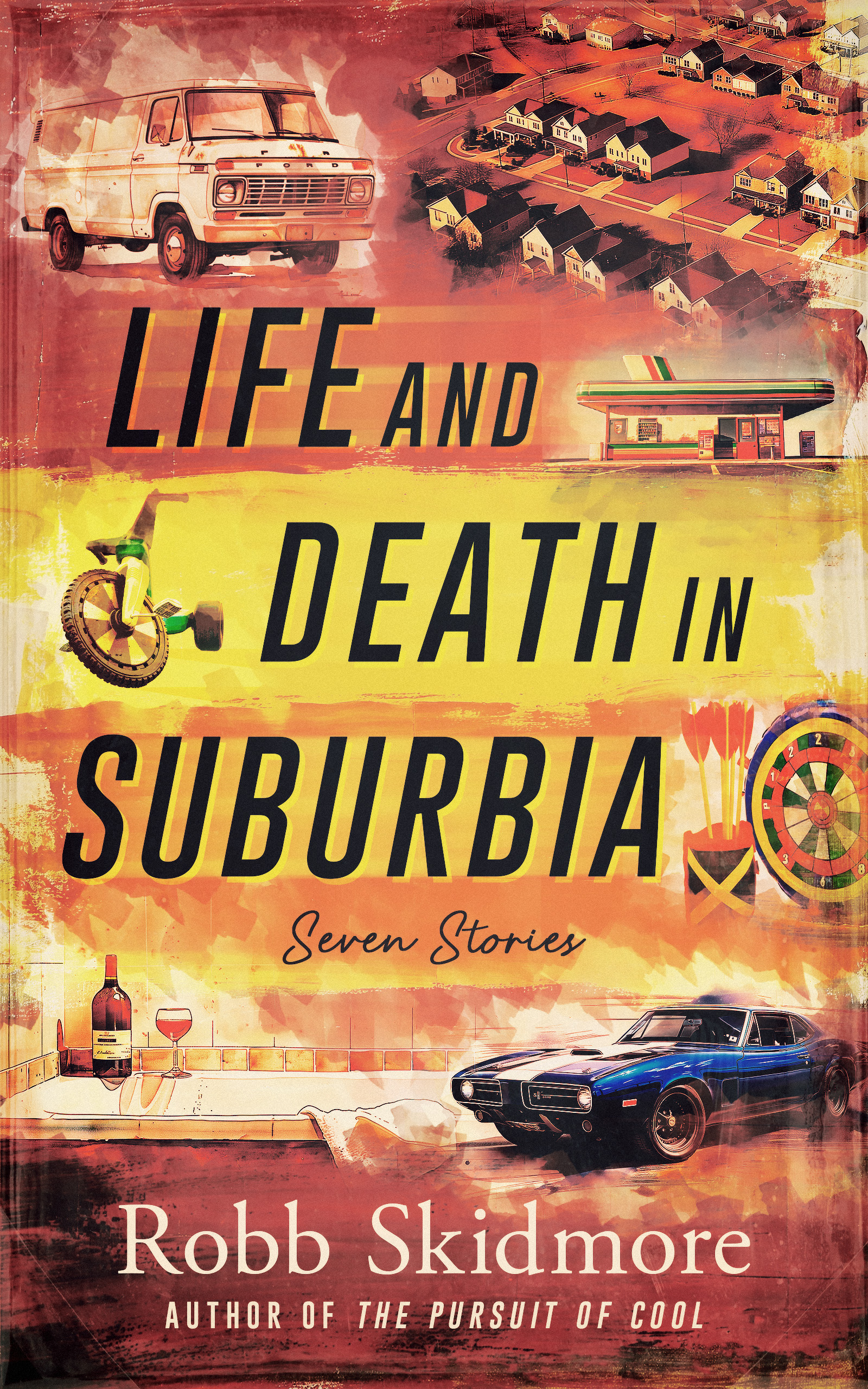In these seven short stories, Robb Skidmore explores life in suburban America during the 1970s, 80s, and 90s. Kids engage in cruel games or struggle to comprehend the mysteries of the adults around them, people struggle to hold onto what they have and make human connections, and families navigate death, illness, and that most American of afflictions: Dissatisfaction.
In a hellishly barren neighborhood surrounded by a moonscape of dirt and gullies, a group of children revel in their cruel power to drive away two outcast kids. A young boy with a speech impediment faces death head on. A teenager trying to raise money to pay for his father’s cancer treatments slides into darkness. A successful husband briefly enjoys a retreat into adolescent thrills and returns with fresh regrets. An artist fights to make connections and get paid for his work. A man drifts so far away from what he sees as a suffocating normalcy that he loses all connection.
The stories in LIFE AND DEATH IN SUBURBIA all share a somber tone: No one is happy, everyone is frustrated. Many convey a sense of real-time loss; the world is smaller and less friendly by the end of the story than it was in the beginning. Connection (or the lack of it) is always a central theme: People struggle to communicate, to understand, to parse clues. The world here is a cruel one in many ways, but it’s a cruelty borne of boredom and disinterest. The characters suffer or succeed not because of any inherent flaw or virtue, but because the universe treats them with casual apathy.
The writing is evocative and has a lulling, poetic rhythm to it:
She gave me a peck as a good night kiss, and from that point I saw her less and less. She travelled incessantly as a public relations person for a corporation, of all things. Pizza delivery flyers and UPS notices collected on her door. Even when she was in town, her hours were erratic and it was hard to catch her. I drew a cartoon of her, surrounded by birdhouses and slid it under her door one night with the inscription: Just Thinking of You. The next time I saw her, she was moving out, transferring to Dallas. Two sweaty guys were helping her.
Some of the stories end abruptly, often just as things are getting interesting. In “We Were Gods,” a group of unsupervised children discover their power to destroy someone else, but instead of exploring this or showing how this terrible knowledge affected them, the story ends. In “When Daddy Came Home,” a young boy struggling with his speech receives an urn containing his fighter pilot father’s ashes; while burying it in the backyard, he speaks a eulogy without issue, and again the story ends without digging into why.
Even the most effective story here, “Saunter,” stops frustratingly short of its potential. A disaffected man sees the “normal” world as The Zone, a Twilight Zone-ish funhouse mirror of reality, and chooses not to be a part of it. Drifting through life, he takes temporary shelter in an apartment complex and begins a hesitant, uncertain relationship with a neighbor. One hot day he makes a startling choice that serves to push him completely outside of the Zone—and the story ends, leaving everything that follows up to us.
That may be the intention, to intrigue and then let us decide. But often the decision to stop telling the story is frustrating because these stories trade in a lot of description and build up, making the truncated payoffs feel like anticlimax. That said, Skidmore establishes a unique style and point of view very quickly, and the stories share a unifying tone and atmosphere that is both thoughtful and comforting despite the bleak outlook often on display. His characters feel very human, and they all share a yearning for something greater, something more, that readers will connect with.
In LIFE AND DEATH IN SUBURBIA, author Robb Skidmore captures in clean and precise prose a place and time—exploring several interesting character studies.
~Jeff Somers for IndieReader


